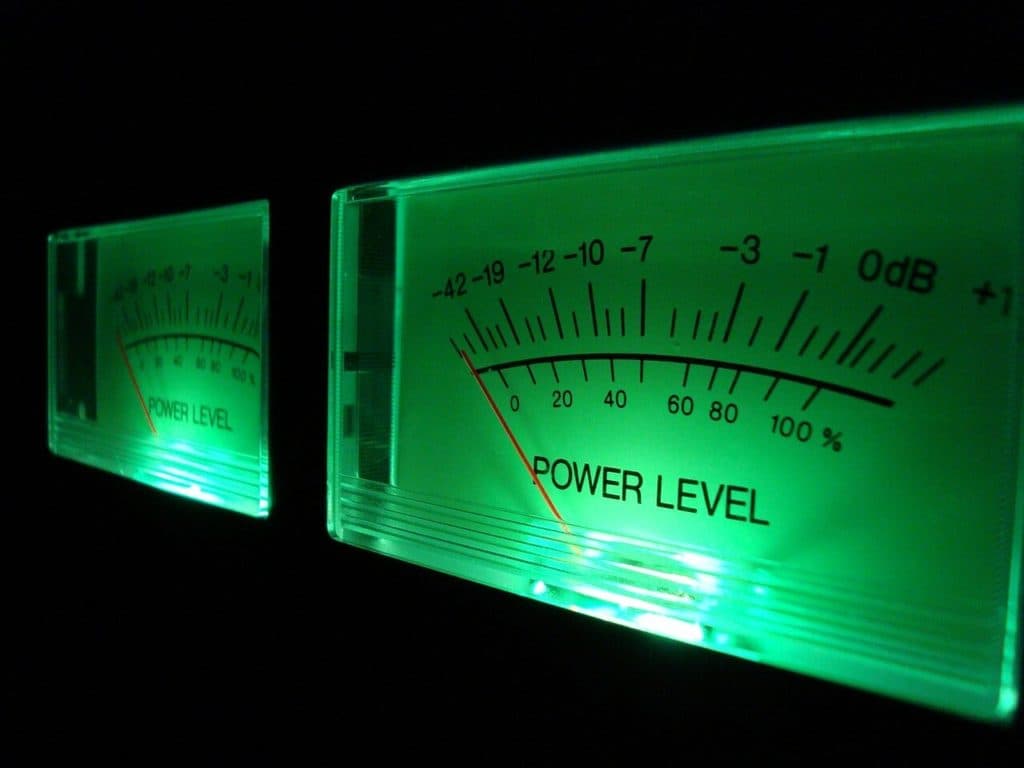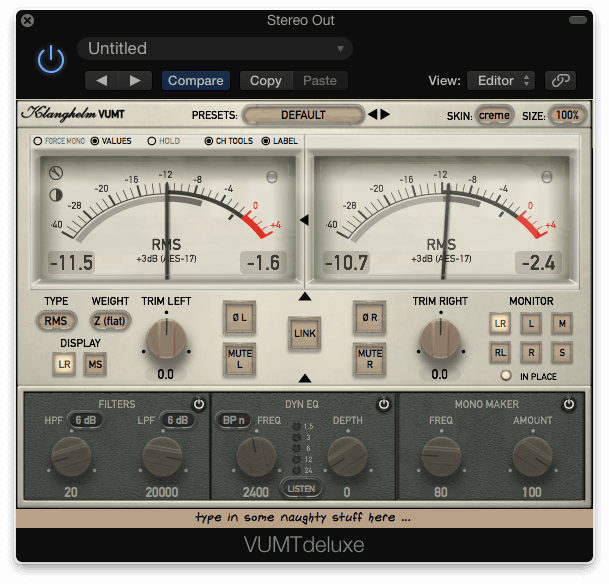
6 Useful Metering Plug-ins for Mastering Audio
In this article, we share with you some of our favourite metering plugins to help in the mastering process.
Youlean Loudness Meter
YouLean is featured prominently on my master bus. This plugin will give you real-time updates as to the integrated, momentary, and short term LUFS value during playback. It’s also very useful for keeping your True Peak levels in check.
As you can see on the right hand side of the below screenshot, YouLean actually plots a graph showing the historical LUFS vales of the song.

Brainworx bx_meter
This isn’t a loudness meter as such. It’s a dynamic range meter that uses basic units such as peak and RMS. It’s floating dynamic section is a very good indicator of where on the scale the energy of the song is at any given moment. It is especially useful if you are using the K-System for monitoring and serves as a guide to knowing the dynamics of the song you are mastering. The RMS meter can be calibrated to various frequency weightings as to get a better idea of the loudness relative to full scale as opposed to just simple RMS which is very sensitive to bass.

Available from the Plugin Alliance website
MLoudnessAnalyzer
A very sophisticated loudness meter that allows you to set a ‘target loudness’ which the meters respond to allowing to visually achieve your LUFS goal. It even features a PLR meter. PLR is Peak to Loudness Ratio, the difference between the integrated LUFS and peak value. PLR is good to know when optimising for loudness normalised streaming platforms.

Klanghelm VUMT
Based on the design of classic VU meters of their time. I personally use this as slow RMS meter, very useful for balancing the louder parts of songs within the context of album mastering. It even features a mono maker for summing everything below a given frequency to mono.
Available from the Klanghelm webiste

Voxengo SPAN (Stereo Mastering Setting)
This one is always good to look at when you have slight doubts or need validation of the general distribution of energy over the frequency spectrum. Generally speaking, you are looking for a reasonably flat response here rolling off at around 8k. However, this is a huge generalisation and should not be forced out of a given mix if there is energy lacking in some frequency domains. Use it as a reference. The same goes for all meters for that matter.

Orban Loudness Meter
Sometimes I get to the goal quite quickly without the use of meters. Orban is unique in the sense that it’s not actually a plug-in. It’s in fact an app that allows you to get your loudness and true peak levels from a printed mix or master. This saves time as I don’t have to play the song through just to know my LUFS values and such. Good for just checking the numbers after the fact and for comparing tracks.

Meterplugs
Ian Shepherd and the good people at Meterplugs have created a solid range of metering plugins that go way beyond yesteryear’s familiar standards. Their flagship plugins include Dynameter and Perception, helping you find the right balance between loud and dynamic, the sweetspot if you will.
Your Stock Meter
It’s very likely that your DAW features it’s own meters. They will likely give you peak and RMS readings at least. As with all of these plugins, it’s best to start using them with real material and learning how they respond to various types of music. I often drag things from my iTunes library to see what it looks like through the meters I use. This helps me paint a picture of what to work towards, especially when using reference tracks.
+ Just because Spotify normalises to -14 LUFS, doesn’t mean you have to!
Learn Mastering
There is a lot more to mastering than looking at meters, but it doesn’t have to be rocket science. If you are keen to learn more about mastering, check out our Mastering in Logic Pro X Course.
This article was brought to you by Songcards
© 2025 Unlock Your Sound Ltd | Privacy Policy
